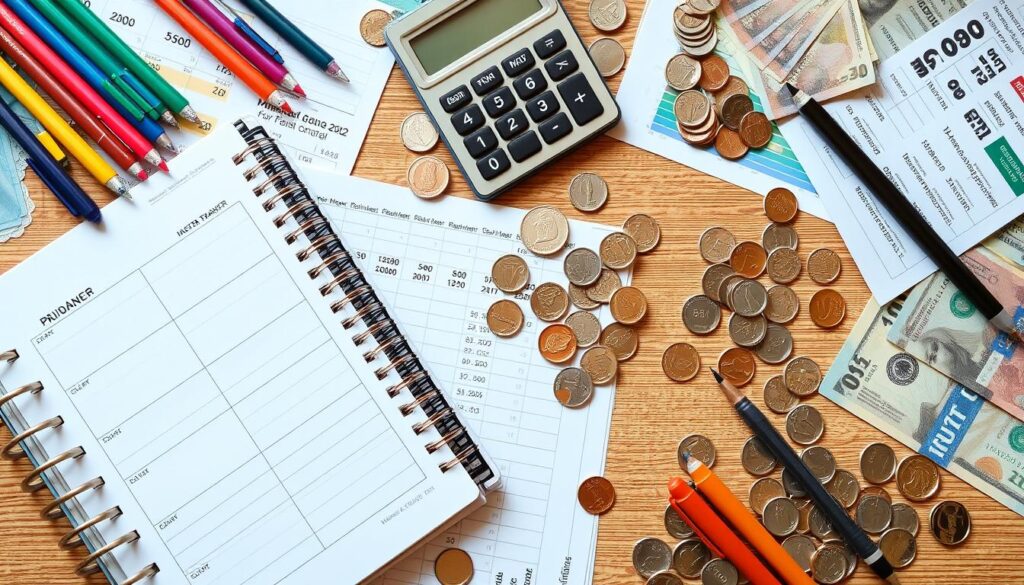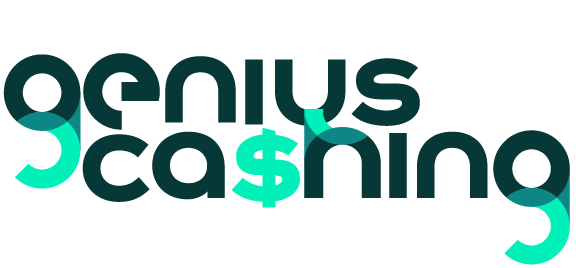Emergency Loans: When and How to Use Them to Cover Deficits
Anúncios
Unexpected financial emergencies can happen anytime.
They leave people needing money fast for important things. This is when emergency loans help, offering a quick fix to financial problems.
What Are Emergency Loans?

Emergency loans are short-term funds for unexpected financial needs.
They help cover urgent costs like medical bills or car repairs. This type of loan is meant for quick access to cash when you need it most.
Anúncios
Defining Emergency Loans
An emergency loan is a small, short-term personal loan. It’s designed to help until your next paycheck. This way, you can get cash fast for emergencies.
Types of Emergency Loans
There are many emergency loans, like payday loans, personal loans, title loans, and cash advances. Each has its own rules and benefits. Knowing the differences is key before you apply.
- Payday Loans: These are short-term, high-interest loans due on your next payday.
- Personal Loans: These are unsecured and can be used for emergencies or other needs.
- Title Loans: These loans use your car as collateral for quick cash, but risk your vehicle if you can’t repay.
- Cash Advances: These loans let you access part of your next paycheck, often with high fees.
Before getting an emergency loan, think about the pros and cons. Make sure it fits your financial situation and goals.
When to Consider an Emergency Loan
Unexpected financial emergencies can happen anytime. They might require you to pay for medical bills or urgent car repairs. In these emergency situations, an emergency loan can offer a quick solution to get the money you need.
Think about getting an emergency loan if you face these situations:
- Unexpected Medical Expenses: If you or a family member has an unexpected medical issue, an emergency loan can help. It covers medical bills without using up your savings.
- Urgent Car Repairs: If your car suddenly breaks down and needs quick car repairs, an emergency loan can help. It gives you the money to fix your car and get it running again.
- Natural Disasters or Emergencies: After a natural disaster or other emergency situations, an emergency loan can be a lifesaver. It helps with the costs of repairs, replacements, or other urgent needs.
- Job Loss or Income Disruption: If you lose your job or face income problems, an emergency loan can be a big help. It bridges the gap and covers unexpected expenses until you’re financially stable again.
By carefully thinking about your financial situation and weighing the pros and cons, an emergency loan can be a valuable tool. It helps you manage unexpected expenses and keep your finances stable during tough times.
Advantages of Emergency Loans
Emergency loans can be a big help when you face unexpected money problems.
They offer quick access to funds and flexible repayment plans. These features make them a good choice for many people.
Quick Access to Funds
Emergency loans are great because they let you get money fast. Unlike regular loans, which can take a long time, emergency loans are quick. You can get the cash you need in just a few days or hours.
This speed is crucial when you have urgent financial needs. It helps you cover important expenses or unexpected emergencies right away.
Flexible Repayment Options
Emergency loans also offer flexible repayment plans. Lenders provide different terms to fit your budget. This is helpful for people with irregular incomes.
It lets you adjust your loan payments to match your financial situation. This flexibility is a big plus for those who need it.
In short, emergency loans are beneficial because they offer fast funding and flexible repayment. Knowing these benefits can help you decide if an emergency loan is right for you.
Disadvantages of Emergency Loans
Emergency loans can be a lifesaver when you’re in a tight spot. But, they also have big downsides. The main issue is their high-interest rates, which can make paying back the loan hard.
High-Interest Rates
Emergency loans usually have interest rates much higher than regular loans or credit cards. Lenders charge more because they see these loans as riskier. This can lead to a debt trap if not handled right.
| Loan Type | Average Interest Rate |
|---|---|
| Emergency Loan | 24% – 36% |
| Personal Loan | 10% – 28% |
| Credit Card | 16% – 24% |
The table highlights emergency loans’ high interest rates. Sometimes, they can reach up to 36%. This makes it tough to pay back the loan in the short time given, leading to debt problems.
“Emergency loans should be used as a last resort, as their high-interest rates and short repayment periods can make them a costly and risky option for many borrowers.”
Before getting an emergency loan, think about the downsides. High-interest rates and short repayment times are big concerns. Emergency loans might solve a short-term problem but can cause long-term financial issues if not managed well.
Emergency Loans vs. Other Options
When you face a financial emergency, you have several choices besides emergency loans. These include personal loans, credit cards, and borrowing from family or friends. Knowing the good and bad of each can help you choose wisely during tough times.
Personal Loans
Personal loans often have lower interest rates than emergency loans. They let you borrow more money. But, they might not be as quick to get, especially if you have good credit.
Credit Cards
Credit cards can be handy for unexpected bills, especially if you have a card with a 0% APR. They offer a quick fix. Yet, you must pay off the balance fast to avoid high interest. Also, credit cards usually have smaller limits than other options.
Borrowing from Family or Friends
Asking family or friends for money can be tricky. But, it’s a good choice if you trust them. It lets you borrow without interest or credit checks. Just make sure to have a solid plan to repay them to keep your relationship strong.
| Option | Pros | Cons |
|---|---|---|
| Personal Loans |
|
|
| Credit Cards |
|
|
| Borrowing from Family/Friends |
|
|
When looking at emergency loan alternatives, think about your financial situation and credit history. Also, consider how you’ll repay the loan. Each option has its pros and cons. So, it’s important to think them over carefully before deciding.
How to Qualify for an Emergency Loan
To get an emergency loan, you need to meet certain criteria. These include your credit score, income, employment status, and if you can offer collateral. Knowing what lenders look for can help you get the financial help you need quickly.
Credit Score Considerations
Lenders have a minimum credit score for emergency loans. A higher credit score means better loan terms and approval chances.
Proof of Income and Employment
Showing you have a steady income and employment is key. Lenders need to know you can repay the loan on time.
Collateral Requirements
Some loans require collateral like a car or home. This lowers the lender’s risk but means losing the asset if you can’t repay.
| Requirement | Explanation |
|---|---|
| Credit score | Lenders have minimum credit score thresholds for emergency loans. |
| Income | A stable income is essential for emergency loans. |
| Employment | Lenders check for steady employment and timely repayment. |
| Collateral | Some loans require collateral, like a car or home, to secure the loan. |
Understanding these requirements for emergency loans helps prepare you. It increases your chances of getting the financial help you need in a crisis.
Tips for Using Emergency Loans Wisely
When you’re thinking about getting an emergency loan, be careful and smart. Follow some important tips to use these loans wisely. This way, you’ll help your finances stay strong.
Assess Your Financial Situation
Before you apply for an emergency loan, check your finances first. Look at your income, what you spend, and any debts. This helps you know how much to borrow and if you can pay it back without trouble.
Shop Around for the Best Rates
Emergency loans have different interest rates. Take time to compare interest rates and explore different lenders. Look at online lenders, banks, and credit unions to find the best deal.
Being responsible with emergency loans is crucial. By understanding your finances and comparing rates, you can get the most out of these loans. This way, you avoid big problems.
“The key to using emergency loans wisely is to approach the process with a clear understanding of your financial needs and the available options.”
| Tip | Description |
|---|---|
| Assess Financial Situation | Evaluate your income, expenses, and outstanding debts to determine the appropriate loan amount and repayment terms. |
| Compare Interest Rates | Explore different lenders, including online, traditional banks, and credit unions, to find the most favorable interest rates. |
| Responsible Borrowing | Ensure that the emergency loan aligns with your financial needs and that you can comfortably manage the repayment terms. |
Emergency Loans for Bad Credit
Even those with poor credit can get emergency loans. They might pay higher interest or need collateral. For quick cash, bad credit holders can look at alternative lenders and secured loans.
For high-risk borrowers, a secured emergency loan might be the only option. This loan requires collateral, like a car or home. It’s risky but could be the only way to get emergency funds.
Online lenders and peer-to-peer platforms are also good options. They might accept people with bad credit. These alternative lenders often have easier rules and better rates for emergency loans for bad credit.
“When faced with a financial emergency, it’s important to explore all available options, even if your credit is less than ideal. With the right lender and approach, you can still get the funds you need to cover unexpected expenses.”
It’s crucial to compare offers from different emergency loan providers. This way, high-risk borrowers with bad credit can find the best deal. By doing this, they can get the funds they need without hurting their finances too much.
Repaying an Emergency Loan
It’s key to repay an emergency loan on time to avoid more money troubles. Making a budget for the loan and paying on time helps keep you out of debt. This keeps your finances stable.
Budgeting for Repayment
Start by making a detailed budget to repay an emergency loan. Look at your income and expenses to see how much you can set aside each month. Make sure you can handle other bills too, so you can pay on time.
Think about cutting back on non-essential spending to save for the loan. Focus on what you really need and cut back on things you don’t. This way, you can stick to your budget and avoid default.
| Tips for Budgeting for Repayment | Benefits |
|---|---|
| Create a detailed budget | Ensures you can afford the monthly payments |
| Prioritize essential expenses | Frees up funds for loan repayment |
| Reduce discretionary spending | Provides more money for on-time payments |
By budgeting for repayment and making on-time payments, you can avoid default on your emergency loan. This keeps your finances healthy.

Emergency Loans and Your Credit Score
Emergency loans can affect your credit score in different ways. They can either help or hurt your creditworthiness, depending on how you handle the loan. It’s important to think about this when you need quick cash.
Credit utilization is a key factor to remember. Emergency loans add to your debt, which can raise your credit utilization ratio. This might lower your credit score because lenders see high utilization as risky.
But, the payment history of the loan can also help your score. If you pay on time, it shows you can handle debt responsibly. This can improve your creditworthiness over time.
The way the credit reporting works for emergency loans matters too. Some lenders report them as installment loans, while others as short-term or payday loans. This can affect your credit score differently.
| Factors | Impact on Credit Score |
|---|---|
| Credit Utilization | Temporary Increase |
| Payment History | Positive if Payments Made on Time |
| Credit Reporting | Depends on Lender’s Categorization |
The effect of emergency loans on your credit score can be mixed. By understanding the factors and managing the loan well, you can reduce any negative effects. You might even see your credit score improve over time.
Alternatives to Emergency Loans
Emergency loans might not always be the best choice. There are other ways to handle financial emergencies. You could use your savings, borrow from loved ones, talk to creditors, or set up payment plans.
Utilize Your Savings Account
Using your savings is a great alternative to emergency loans. If you have enough saved, you can avoid high-interest rates and credit score damage. Withdrawing from your savings gives you the money you need without adding to your debt.
Borrow from Family or Friends
Borrowing from family or friends is another option. It might be cheaper and more flexible, with better repayment terms. But, be careful not to damage your relationships.
Negotiate with Creditors
You can also talk to your creditors. They might agree to a payment plan or temporary deferment to help you out. This could be cheaper than an emergency loan.
| Alternative | Potential Benefits | Potential Drawbacks |
|---|---|---|
| Savings Account | Avoid high-interest rates, no impact on credit score | May deplete emergency fund |
| Borrowing from Family/Friends | Flexible repayment terms, potentially lower interest rates | Can strain personal relationships |
| Negotiating with Creditors | May be able to set up payment plans or temporary deferment | Requires negotiation skills, may not be successful |
Looking into these alternatives can help you find a better way to handle emergencies. This way, you can manage your crisis without hurting your long-term finances.
Conclusion
Emergency loans can be very helpful when you need money fast. They offer quick access to funds and flexible repayment plans. But, they can also have high-interest rates.
It’s important to know your financial situation well. Look for the best rates and make a budget to pay back the loan on time. This way, you can use emergency loans wisely without harming your future finances.
Emergency loans can help in many situations, like medical bills or car repairs. But, it’s key to look at all your options. This includes personal loans, credit cards, and even borrowing from family or friends.
By focusing on your financial health and making smart choices, you can handle financial problems well. This approach helps you stay strong and confident in the face of challenges.
